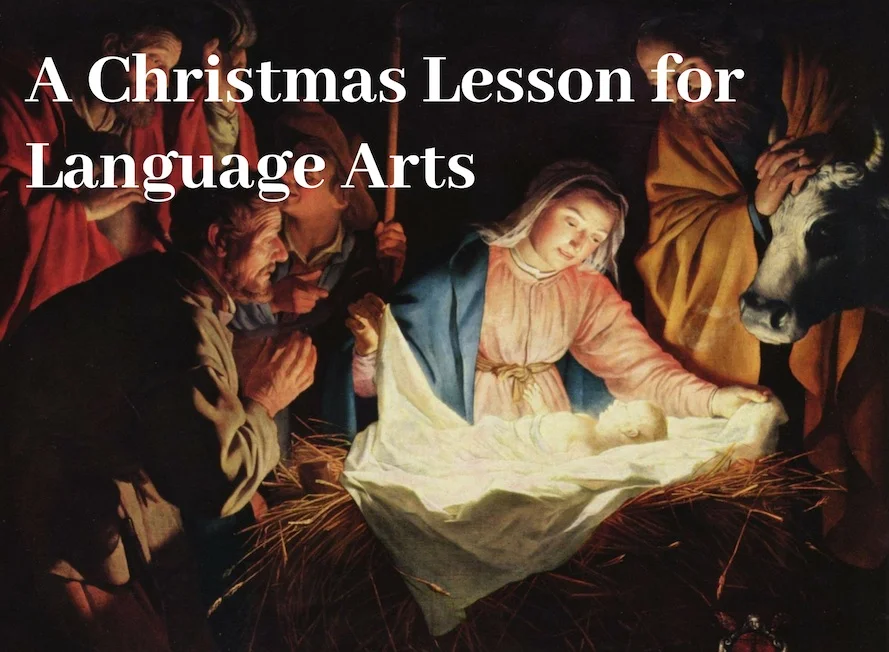We recognize birthdays to celebrate the life of a person. On a national level, we celebrate four birthdays of people that have impacted our world: Martin Luther King, Jr. (celebrated as a federal holiday on the third Monday of January), George Washington and Abraham Lincoln (celebrated as a federal holiday on the third Monday of February), and Jesus Christ (celebrated as a federal holiday on December 25).
On their birthdays we don’t make a big deal of baby Martin and George and Abe lying in their cribs in their diapers. Instead, as we should, we acknowledge the impact their lives had, and continue to have, on society.
Christmas, of course, is different because the birth of Jesus was a monumentally different event. No mere human was born. God’s Son became flesh and dwelt among us. The event, and all that surrounded it, is worthy of honor and glory and praise in, and of, itself! For Christians, who make up the majority of Americans, celebrating his birth is a big deal.
I encourage public school teachers to use the run-up to Christmas as an opportunity to not only teach about the biblical account of Jesus’ birth, but also to talk about the impact of his life. Just as teachers use Martin Luther King, Jr. Day and Presidents Day to talk about the impact of these men, teachers should educate students on the impact of Jesus while recognizing his birth.
The history of Western civilization is filled with opportunities to discuss the impact of Jesus on government, culture, and values. Here is an idea involving English/Language Arts that teachers can use to help students appreciate a simple, yet often overlooked, way Jesus influenced our culture.
A Classroom Lesson
Explain that any birthday celebration is a recognition of the life of the person being celebrated. For Christians, the birth of Jesus has important religious significance. However, anyone can appreciate the impact his life had on society. One simple example is found in the common phrases we use.
Introduce students to phrases we use today that had their origin in the words of Jesus. For example, “A house divided against itself…” comes from Matthew 12:25 when Jesus said: “Every kingdom divided against itself is brought to desolation, and every city or house divided against itself will not stand.”
The phrase means there is no strength in disunity. In his nomination acceptance speech of 1858, Abraham Lincoln famously said “a house divided against itself cannot stand. I believe this government cannot endure, permanently half slave and half free.”
List the phrases (below) on one page. In groups, have students decide what each phrase means and write it next to the phrase.
On another page, give the context of Jesus’ words. Cut and paste the text from an online Bible to provide them with the full context of how Jesus used the phrase. This is not devotional, it’s academic. It is a Language Arts lesson.
If your state has Common Core Language Arts standards, you might even quote the standard at the bottom of the student handout (RL.8.9 “Analyze how a modern work of fiction draws on themes, patterns of events, or character types from myths, traditional stories, or religious works such as the Bible.”)
For California, quote academic standard 6.7.6, “Note the origins of Christianity in the Jewish Messianic prophecies, the life and teachings of Jesus of Nazareth as described in the New Testament…”
For Texas, quote academic standard 113.18(b)(19), “explain the significance of religious holidays and observances such as Christmas…”
If you’d like our research on your state’s academic standards regarding the Bible and Christianity, request it by using gogateways.org/contact.
Here are some examples you could use in your Language Arts lesson:
“Turn the other cheek.” – Matthew 5:39
“Give the shirt off your back.” – Matthew 5:40
“Go the extra mile.” – Matthew 5:41
“A house divided against itself…” – Matthew 12:25
The Good Samaritan – Luke 10:30-37
“Wolf in sheep’s clothing” – Matthew 7:15
“Red sky at night, shepherd’s (or sailor’s) delight.” – Matthew 16:2
“Sign of the times” – Matthew 16:3
“Salt of the earth” – Matthew 5:13
“The spirit is willing, but the flesh is weak.” – Matthew 26:41
Learning about the birth of Jesus is an important cultural lesson for all students. It is also important for them to learn of his teachings that have so impacted the world. Learning about commonly used phrases that originated with Jesus is just a fun and simple way to help students make another connection between the holiday and the culture.
For more resources, visit GoGateways.org/christmas
Eric Buehrer is the president of Gateways to Better Education





